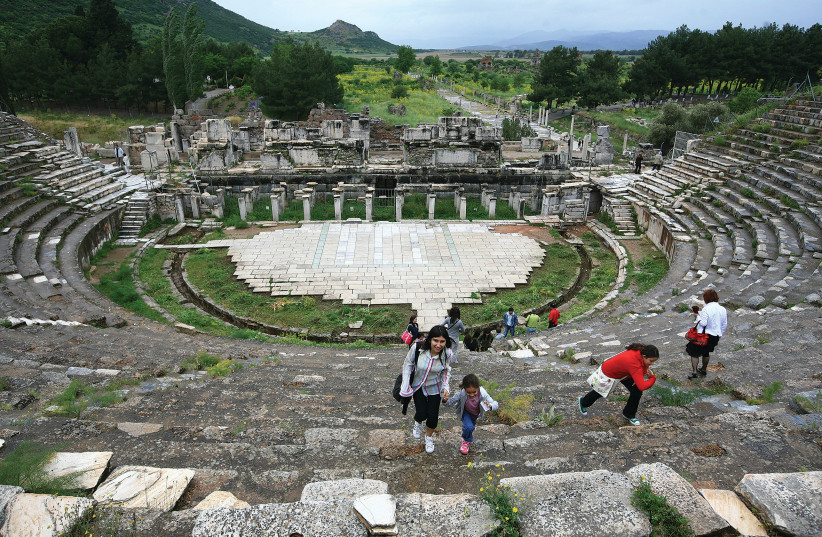A settlement dating back 14,000 years was discovered for the first time on the west coast of Turkey, the German Archaeological Institute announced on Tuesday.
The discovery of the site itself was made by a team of Turkish and German scientists during autumn of last year, where an archaeological survey of an excavation that took place in a cave between the cities of Dikili and Bergama.
The layers found are from the Epipaleolithic Period. Researchers determined the age by using radiocarbon method and close examination of other discoveries found such as stone tools and bones.
Other findings dated back to the Byzantine and Islamic periods, as well as the Bronze Age.
To further research the ancient site, a rescue excavation was carried out over the course of six weeks a few months ago with the support of the Turkish Ministry of Culture and Tourism and under the direction of the Bergama Museum.

The cave where the settlement was discovered was also used as a living and production site for hunter-gatherers.
